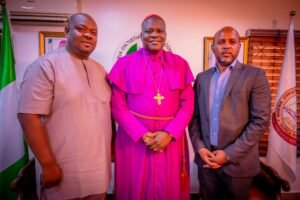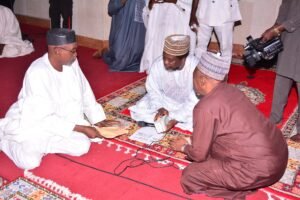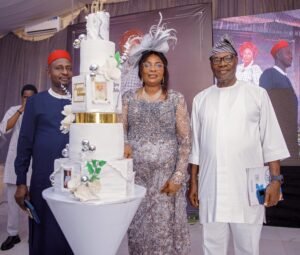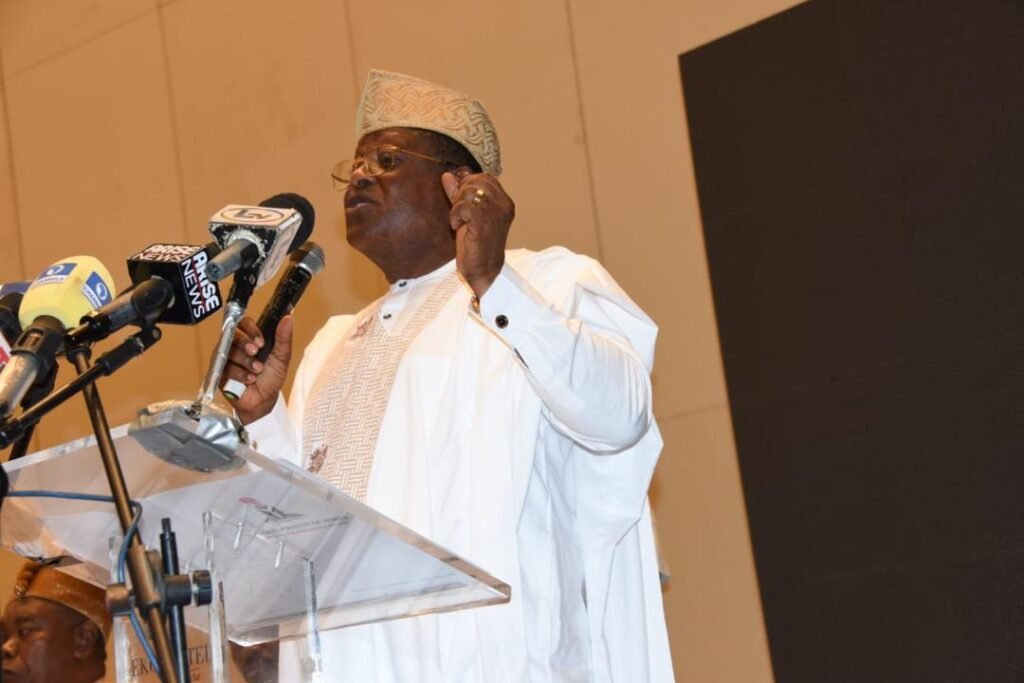
By Emmanuella Oghenetega
The Minister of Works, Engr. David Umahi, has reiterated the commitment of the President to ensure, that the Legacy Projects in the road sector passes through all six (6) geopolitical zones of the Federation.
He made this reaffirmation during a Continuous Stakeholders’ Engagement on the Lagos – Calabar Coastal Highway held Sunday, 23rd February, 2025, in Lagos, after a 4-day working visit to road project sites in some South Western States.
According to Umahi, the ongoing 750-kilometre Coastal Highway Legacy Project begins in Victoria Island, Lagos, and ends in Calabar, Cross River State with spurs in Ondo and Cross River States, stressing that it passes through the South West, South-South, as well as the South East zones of Nigeria.
Another one is the Abakaliki-Abuja Highway, which commences at Abakaliki, Ebonyi State, South East, Nigeria, where the spur from Calabar ends, passing through several towns and villages in the North Central zone and terminating at Apo, Abuja in the Federal Capital Territory.
The Ilelah (Sokoto) – Badagry (Lagos) is traversing the North West down to the South West zones. At the same time, the fourth is planned to take off from Akwanga in Nasarawa State to Jos, Plateau State both in the North Central zone passing through Bauchi, and ending at the Gombe State capital both in the North East zone.
A statement signed by Mohammed A. Ahmed, Director, Press and Public Relations, disclosed, that the Minister applauded the President for his ingenuity in initiating this lofty idea, which is not mere road and bridge infrastructures but investments in our collective future. “These Legacy Projects should be welcomed and encouraged by all Nigerians for their economic derivatives rather than being politicised,” he admonished.
The Minister, who used the Engagement to update Nigerians on some ongoing projects in the country, affirmed that they are a testament that Mr. President is working in all geopolitical zones.
Revealing, that some of the completed sections of the projects will be commissioned in May 2025.
Earlier in her Welcome Speech, the Federal Controller of Works, Lagos State, Engr. Kesha Olukorede stated that the engagement with stakeholders on the Lagos – Calabar corridor is a continuous one until all thorny issues are resolved. 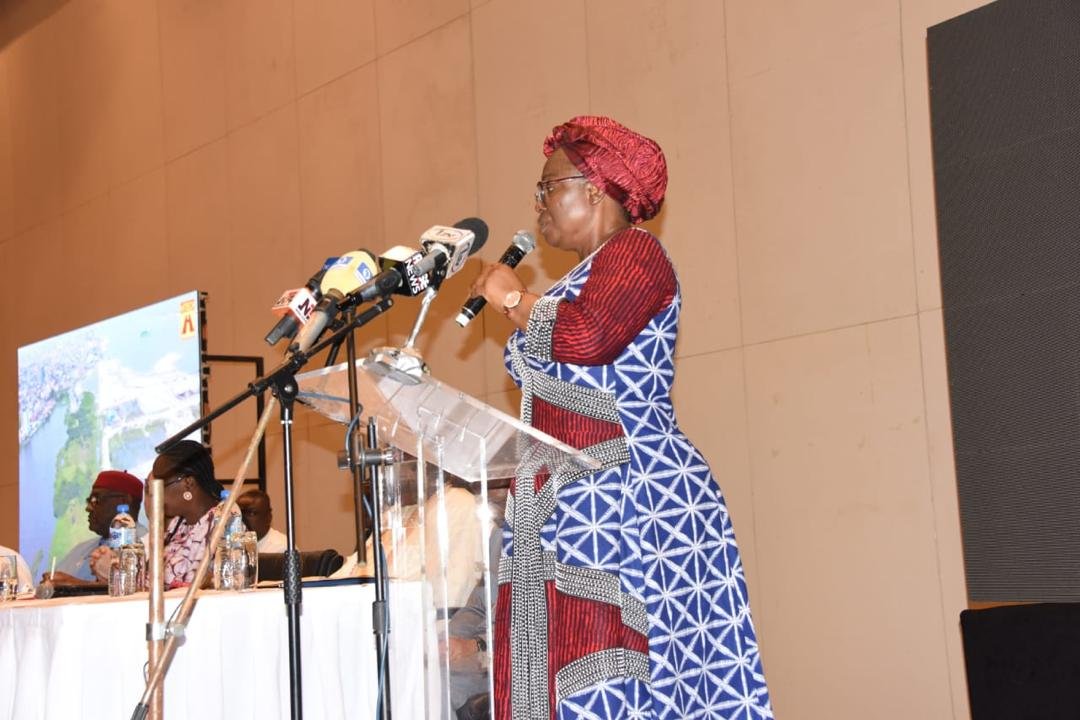
She further said that this meeting also gauges the citizens’ feelings about the gigantic project. While appreciating the Minister for his ever-ready attitude to meet with affected communities and individuals along the corridor, she also thanked them for the maximum cooperation given to the contractor in executing the contract.
Speaking at the meeting, the Director, Highways, Bridges and Design, Engr. Bede Obiora disclosed that the purpose of the gathering was to engage stakeholders, individually collectively affected by the construction of the 103-kilometre alignment within Lagos State.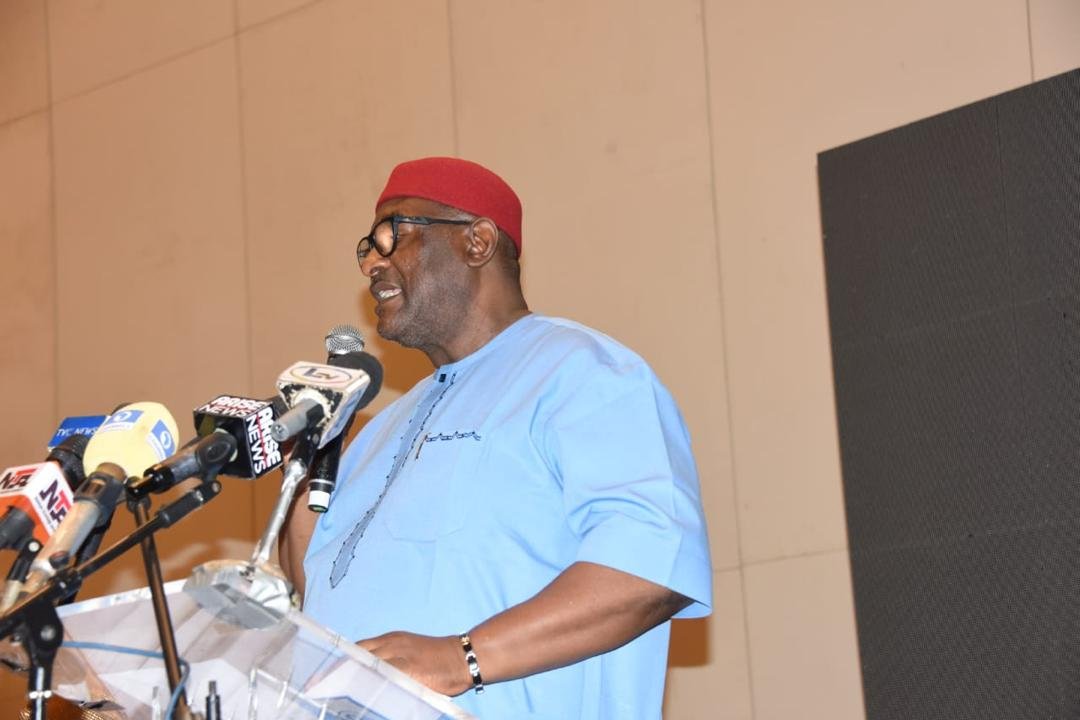
During the Question and Answer Session, the Oba of Oduomi, Oba Adeleke Akimi Ismailla, community members, and elders including their Representative in the National Assembly, Hon Samson Adekunle and the Local Government Chairman of Ibeju Lekki, while praising the President and the Minister for the gigantic project, expressed apprehension over a rumour that another design, which excludes their community, is being contemplated.
The Minister informed them that it was true but the idea has been shelved and the construction is following the original plan.
Others with concerns about parcels of land and buildings, cables, and schools, amongst others affected were assured that the Federal government would pay compensation but land would not be included. 
The Minister, in his assurance said; “We will not demolish any property without paying for it. We pay and compensate properties not land, according to the laws of the land.”
He added, that cable ducts are to be installed to avoid damaging them.
He also intimated the audience that the Federal Government has paid 100% compensation to affected persons along Phase I, Section I, directing that a Secretariat be set up to collate all complaints for compensation in Phase I, Section II.


